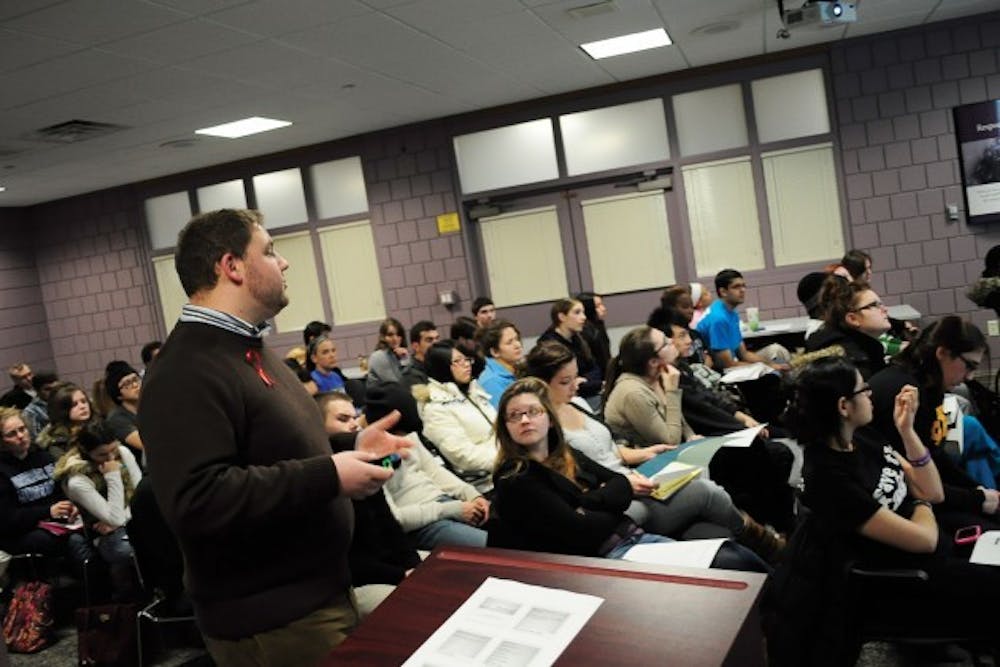There are no horror movies about it and Stephen King doesn't write books about it, but for some, public speaking is a less enticing choice than death.
Making speeches is likely one of the last things college students want to do, but Jude Butch, the leadership program coordinator for the Center for Student Leadership and Community Engagement (CSLCE), believes it is an art that can be mastered.
Speakers often overestimate the extent to which things can go wrong during a presentation. In doing so, many trick themselves into making those things happen. Butch suggests arriving early to avoid these distractions, which gives speakers time to relax and greet the audience members as they arrive.
Another strategy to combat nerves when presenting is having a full understanding of the topic of discussion. If speakers have two or three key points that they know they have to make, it will be much easier for them to avoid freezing up and stuttering. Speaking from personal experiences also makes for great speeches, according to Butch.
"You never forget your own stories," Butch said. "It helps the audience relate to you and makes you feel more comfortable."
An important and often underestimated factor in public speaking is understanding the audience. The way a student would want to present to his friends is entirely different from the way he would present to a potential employer, Butch says. Furthermore, speakers should avoid "talking at" an audience.
"Rather than speaking at them, engage them in conversation, and hopefully, they will engage you back," Butch said.
Engaging the audience may be different for each group of people, however. Butch proposes the use of PowerPoint, group activities, and relevant handouts to help with this task. Students should remain flexible in their approaches, however, and should be able to adapt to whatever the situation may bring.
Being slightly overdressed in comparison to the audience may give the speaker an edge, which could help in adapting to varying circumstances.
"You always want to one-up your audience in your attire; it shows that you're the expert in the room," Butch said.
Most importantly, Butch urges students not to use the age-old trick of picturing everyone in the room naked. She claims it's just a weird trick and might be very inappropriate for certain audiences. Speeches don't have to be hard or tricky, but preparation is certainly important in ensuring everything goes smoothly.
"Practice doesn't make perfect, but it certainly makes better," Butch said.
E-mail: features@ubspectrum.com





